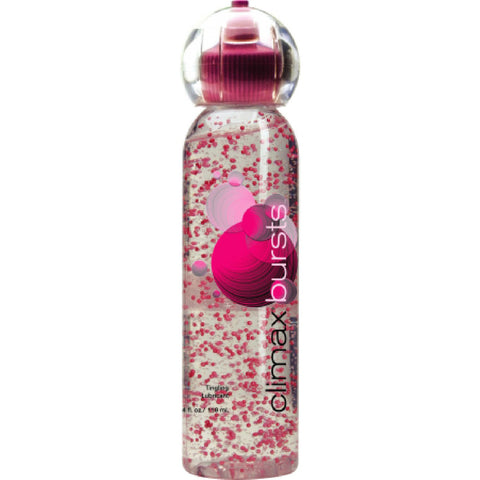To facilitate sexual activity, the vagina produces its own natural lubrication. However, some women may have difficulty producing natural lubes. This significant issue is common among menopausal women.
As an alternative, personal lubes can be used to experience better and more comfortable sex. These lubes come in different flavours, textures and materials.
If you’re unsure of what lube to use, read here to learn more about its types, tips for use and the ingredients to avoid when purchasing.
What are personal lubricants?
Personal lubricants are fluid or gel substances designed to alleviate dryness in the vagina. It also provides added lubrication to prevent chafing, discomfort and pain during an erotic scene. On top of that, they keep the vaginal skin soft.
Lubes are often used during penetrative sex, masturbation, anal play and other sexual activities. They usually help make these sexual acts more pleasurable.
Types of lube
Lubes come in various types. Each type has its own pros and cons. Below are just a few of them.
Water-based lube
Pros
- They are safe to use with any types of condoms.
- It is easy to wash off using soap and water.
- They are perfect to use by people with sensitive skin.
- It is safe to use with sex toys such as vibrator, dildo and more.
- They won’t leave stains on sheets and clothes.
Cons
- It dries out quickly. So it requires frequent reapplication.
- It is not ideal for underwater play or shower sex.
Silicone-based lube
Pros
- It provides a slippery feel to the user.
- They can be used with latex condoms.
- It is ideal for underwater play and masturbation.
- Most of them are paraben and glycerine-free.
- It is a great option for those women with severe vaginal dryness.
Cons
- It leaves stains on clothing, sheets and hardwood floors.
- It can damage silicone sex toys.
Oil-based lube
Pros
Cons
- They are not safe for latex toys and condoms.
- It is not easy to clean.
- It usually leaves stains on bed sheets and clothes.
- There is a risk of getting urinary and vaginal infections when you use this lube.
- It may cause irritation to the vulva.
How to use lube
When using lubricants, you should always follow the instructional manual included. This manual will serve as your guide in using the product properly.
For novices, it is vital to start with an ample amount of lube. Just gradually add more until the vagina feels comfortable. For best results, reapplying lubes is suggested.
Furthermore, to find out how your body responds to each product, try to experiment with several lubes. If the vagina becomes itchy and sore after using the lube, it’s an indication of allergic reaction and sensitivity. Hence, you have to stop using it. Just use the right one suited for your skin.
What to avoid when buying lube
Certain ingredients that can be found in lubricants are not safe for vaginal tissues. Moreover, some may cause health problems to the user. To keep you safe, always check the ingredients list if they contain the following:
-
Paraben - It is a synthetic preservative commonly found in some lubricants. Using lubes with paraben ingredient can irritate the vagina. Apart from that, it also causes genital rashes, endocrine disruption and fertility problems.
-
Glycerine – This ingredient helps retain moisture in lubes. They also provide added slipperiness and warming sensations.
Nevertheless, keep in mind that glycerine is a by-product of sugar. Hence, a high level of glycerine in lubes is not good for the vagina. They usually contribute to bacterial growth that causes yeast infections and UTIs.
-
Chlorhexidine gluconate – It is usually found in multipurpose lubes. This chemical ingredient can kill strains of lactobacillus. Lactobacillus are good bacteria in the vagina. If they are eliminated, there will be inflammation and irritation to a woman’s genital.
-
Nonoxynol-9 – It is a spermicide found in certain lubricants. Nonoxynol-9 usually causes lesions, micro tears and abrasions in the vagina. They also kill both good and bad bacteria in it. Generally, it leads to irritation and a high risk of getting an infection.
-
Petroleum or Petroleum-based ingredients – It is a sticky and oily substance that sometimes found in lubes. This ingredient usually interferes with the pH level of the vagina. It also causes irritation and infection.
-
Undisclosed flavours or fragrance - Certain lubes have fragrances and flavours. However, you have to be watchful of their ingredient lists since they may contain chemicals that might cause irritation and allergy.
Why should you choose The Sex Garden’s lubricants
The Sex Garden offers a wide variety of lubes to choose from. This is to cater to all the needs of their customers. Since different lubes are available in this collection, you can definitely get the best one suited to your preferences.
When you need a quality lube, don’t hesitate to browse this lubricant collection from The Sex Garden. They usually offer great products at an affordable price.
What’s next?
If you’re still searching for a great lube to try on your next solo or partnered play, worry no more. The Sex Garden can provide the safest lubes from trusted brands. Their products are a great addition to experience more exciting and pleasurable sex. Try them now!


